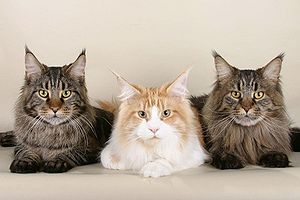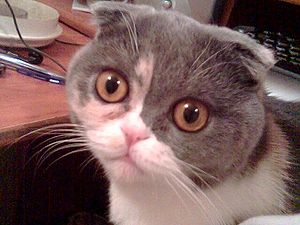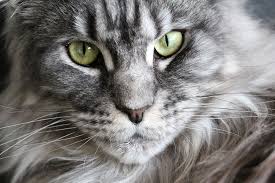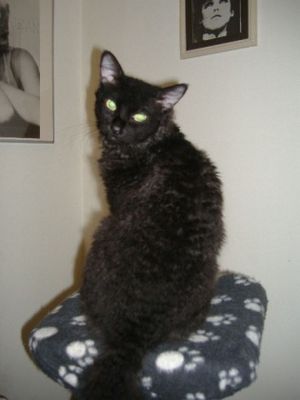 |
| Vital Statistics: |
| Place of Origin: United States |
| Coat Type: medium long, dense, shaggy, soft |
| Color: Any color of cat, commonly brown tabby |
| Temperament: Highly intelligent, gentle, sometimes dog-like, loving |
Where is the Maine Coon cat from?
The Maine Coon is an American bred cat going back to the 1850s and even as far back as the Vikings. One theory is that sailors brought long-haired cats to Maine in their travels. These cats mated with the native short-hairs resulting in the Maine Coon. Interest in the Maine Coon declined until 1953 when they began staging a comeback.
What does the Maine Coon cat look like?
The Maine Coon is a very large cat, the largest domestic cat and can weigh from 13-20 lbs, sometimes more. The large eyes are green or gold. Ears are large, tufted and tapering from a wide base and appear pointed. The hair is medium long, dense, many-layered and shaggy with a neck ruff. The tail is wide at the base, bushy and tapering. Hair on the tail, legs and between the toes is longish and helps keep the cat warm. Their large paws help them walk in the snow. The hair has a silky texture. Maine Coons come in a wide range of colors, the most common being a brown tabby.
Do Maine Coon cats make good pets?
With their high intelligence, Maine Coons train easily. They like to play fetch and sometimes exhibit dog-like behavior and actually get along with dogs and other pets. They are good with children. Maine Coons, with their water-resistant fur, enjoy playing in water. They can purr, but usually make sounds like chirping or trilling. They are a hardy breed, able to endure a wide range in temperature. Gentle and easy to handle, the Maine Coon makes an excellent family pet.
Where can I adopt a Maine Coon cat?
Online: Maine Coon Cat Rescue League at www.mainecatrescue.org
Maine Coon Rescue Alliance at www.mainecoonsavers.com
Some of the Maine Coon rescue organizations do not ship the cats for safety reasons. It’s best to check online for a rescue organization near you.
Possible Health Issues
Hip dysplasia, hypertrophic cardiomyopathy, spinal muscular atrophy.



